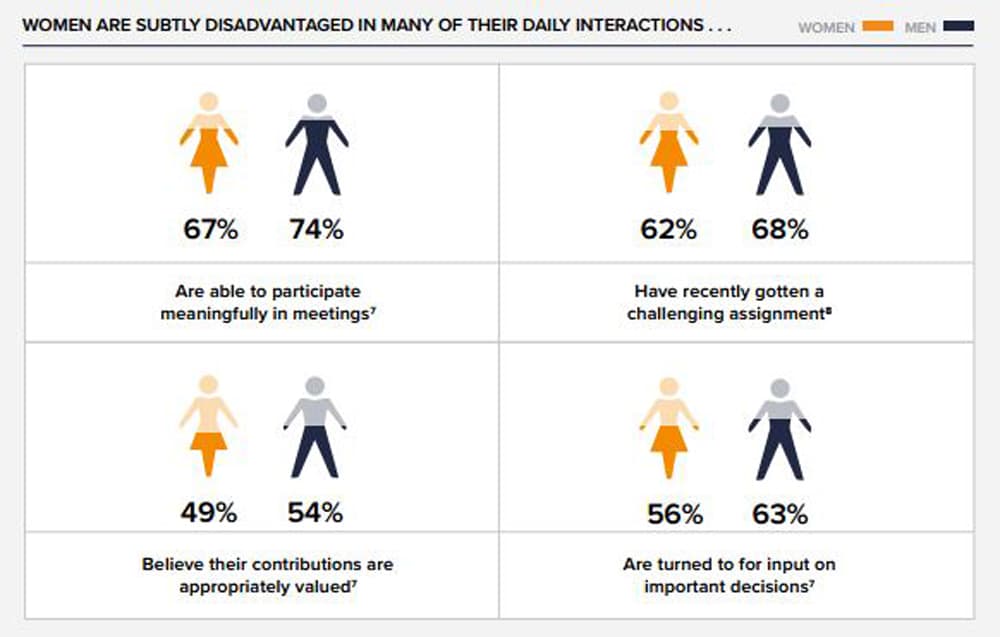Advertisement
6 Takeaways From Report Outlining Disparities For Women In The Workplace
When it comes to advancing in the workplace, it turns out women are “leaning in” but aren't getting very far, according to a new report out Wednesday by McKinsey & Company and LeanIn.org
The report found women are less likely to get promoted to manager and get less access to opportunities that accelerate careers — which leads to fewer women in leadership positions. Some of these findings aren't exactly new, but the report provides a fuller look at women in corporate America.
The findings are based off of data (as of the end of last year) from 132 companies that employ more than 4.6 million people. Additionally, the study included a survey of 34,000 employees that assessed things like job satisfaction, work-life issues and their attitudes on gender.
Here are six key takeaways from the report:
Very few women end up in line to be CEO
The disparity in the pipeline to leadership starts early — and continues throughout careers. According to the report, in the first step up to management, men are 30 percent more likely than women to be promoted. Last year, 90 percent of new CEOs were promoted or hired from other supervisory roles — and 100 percent of them were men.
Women negotiate, but face pushback
The gender wage gap is a persistent issue, locally and nationally. According to the report, women are negotiating as often as men, but are disproportionately penalized for it. The report found women who negotiate for a raise or promotion are 30 percent more likely than men to be called “bossy,” “intimidating” or “too aggressive.”
Read: To Close The Wage Gap, Boston Hopes Salary Negotiation Workshops Will Create A Culture Shift
Workplace disparities are worse for women of color
Women of color (defined as black, Asian, Hispanic and American Indian) make up 20 percent of the U.S. population but hold just 3 percent of C-suite positions — despite having higher aspirations for becoming a top executive than white women — the report found. They’re also less likely to say they received a challenging assignment.
Women are less likely to get feedback
Feedback can be critical to improving performance, which could potentially help an employee advance in the workplace. The report found women ask for feedback as often as men, but are more than 20 percent less likely than men to say they often receive productive feedback from their manager.
Women get less access to company leaders
The study found women have fewer substantive interactions with senior leaders than men. According to the report, 51 percent of women in senior management say they interact with a company leader at least once a week, compared to 62 percent of men. Additionally, the report found disparities when it comes to daily interactions, such as meetings, as illustrated by this graphic:

Companies are struggling to ensure gender diversity
According to the report, 78 percent of companies say gender diversity is a top priority, but that doesn’t always translate into action. Less than half of employees think their company is doing enough to improve gender diversity, according to the report. The report also outlines some solutions. It suggests senior leaders become more vocal about gender diversity and that companies invest in more employee training, track gender metrics and review and reassess their policies for hiring and promotions.
You can read the full report here.
This article was originally published on September 29, 2016.
